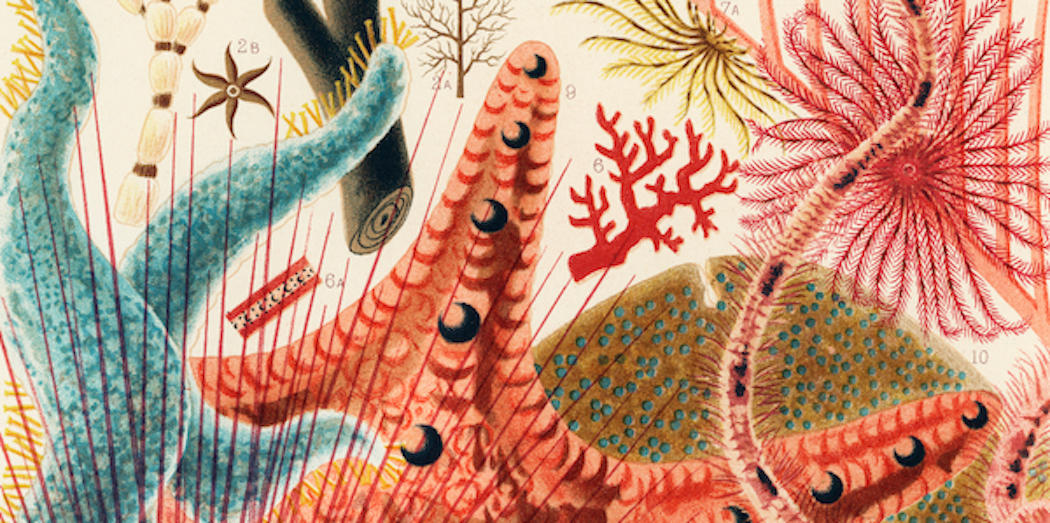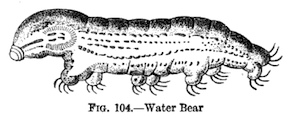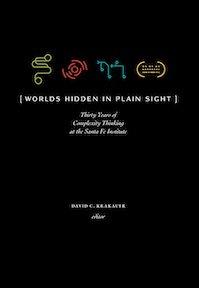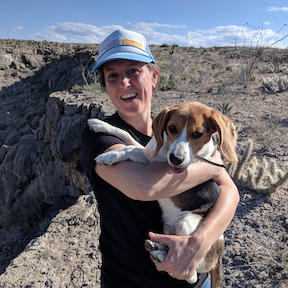
- Complexity Explorer /
- 30 Sep 2019
- Astrobiology Complex Systems Origins of Life History
The End of Origins of Life
Origins of Life, Complexity Explorer’s first Frontiers course, finished about a month ago, led by expert instructors Dr. Chris Kempes, from the Santa Fe Institute, and Dr. Sarah Maurer, from Central Connecticut State University. With help from guest lecturers from around the world, Origins of Life examined how life emerges from an abiotic world. Over 1,450 people enrolled in the course, representing 113 countries.
Teaching assistant Maria Kalambokidis helped guide all of the participants through the course - and she assembled a fantastic set of supplementary resources. If you didn’t participate in the course, you can meet Maria and hear about her research studying microbes at Cuatro Ciénegas, Mexico in a short video segment (specifically starting at 3:36).
Through a series of surveys throughout the course, we asked participants to share their motivations and opinions on Origins of Life. Nearly 70% of survey respondents were interested in the course primarily for general interest, as opposed to for their research or studies. About 85% of survey respondents agreed that the course increased their interest in the study of the origins of life. And 75% of survey respondents would recommend the course to a colleague.
So, if someone recommends Origins of Life to you, all Complexity Explorer courses are available in our archive when the “live” course is not in session. The instructor-facilitated course will be held again in Summer 2020, after we revise and add new material. Participants requested more content about astrobiology and cellular evolution - as well as a surprising number of shout-outs to tardigrades.

If you have not filled out the course evaluation - and especially if you “dropped” the course somewhere along the way - please take a few minutes to complete the survey. Thank you again to everyone who participated, and to the National Science Foundation Division of Environmental Biology grant 1745355 for funding the development of the course.
Three Decades of Complexity
 Most of our Complexity Explorer community had not been born in 1984 when the Santa Fe Institute (SFI) held its first two workshops “Emerging Syntheses in Science”. Sixty participants discussed how the new research center would eschew barriers imposed by departments and instead look toward truly trans-disciplinary science. SFI started as a post-office box, a spare seminar room, an abandoned convent before emerging as the institute that would change the way we think about fundamental questions.
Most of our Complexity Explorer community had not been born in 1984 when the Santa Fe Institute (SFI) held its first two workshops “Emerging Syntheses in Science”. Sixty participants discussed how the new research center would eschew barriers imposed by departments and instead look toward truly trans-disciplinary science. SFI started as a post-office box, a spare seminar room, an abandoned convent before emerging as the institute that would change the way we think about fundamental questions.SFI Press has published a retrospective of the past thirty years of SFI research, Worlds Hidden in Plain Sight, edited and introduced by SFI President Dr. David Krakauer. The book contains three eras of scientists — Mavericks (1984–1999), Unifiers (2000–2014), and Terraformers (2015–now) — and collects essays that describe the greatest challenges in complexity science and the major advances in understanding our complex world. Works from many Complexity Explorer course and tutorial instructors and lecturers are included.
Thank you, Linden!
As we announced some weeks ago, our intrepid Complexity Explorer program coordinator, Linden Schneider, has taken a new position. Trading the online learning universe for the verdant farmlands of the American West, Linden now works with the Quivira Coalition. Here's what Linden had to say about her new role:

LS: I am heading up what I call their climate change initiative. This is a new area for the organization to be addressing explicitly. We are focusing on building resilience in land, via soils and grazing, and communities, through providing stable income and building networks, in the face of a changing climate. Our three big areas of focus right now are: (1) building the soil health network around the state; (2) figuring out the dynamics and sequestration potential for soil carbon in arid rangelands; and (3) building collaborations between government agencies, non-profits, universities, and producers so we can comprehensively implement climate change mitigation and adaptation strategies in New Mexico.
In her time leading Complexity Explorer, Linden did a lot. Behind-the-scenes, she established a new recording studio, structured our course administration, recruited new instructors, and helped develop several new courses, including Origins of Life (summer 2019) and a few upcoming courses that we are eager to launch in 2020.
And Linden's perspective on her Complexity Explorer projects:
LS: I felt extremely lucky to be able to get the Origins of Life course together - especially working with all of the scientists from all over the world! Traveling to Mexico, to the Cuatro Ciénegas Basin, was a real treat. I was able to see some of the most biogeochemically interesting sites in the whole world - and get to share them all with you. Additionally, building relationships with the amazingly accomplished scientists from the Instituto de Ecologíca at the Universidad Nacional Autónoma de México. They welcomed us with open arms, drove us 14 hours through beautiful Mexico, and we got to share Cuatro Ciénegas with the world through Complexity Explorer.
She has been a tremendously kind and helpful colleague to everyone here at the Santa Fe Institute. A true unsung hero. Her departure leaves a notable gap in our complexity science community. But she is doing critical work to rescue the environment, and for that, as well as all she has done for Complexity Explorer, we thank her sincerely.
And Linden's farewell to the Complexity Explorer community:
LS: Thank you all of your support - building a community of global learners supports world peace and understanding, something that we need more than ever right now. You are not trivial and I look forward to meeting some of you one day, who knows!
